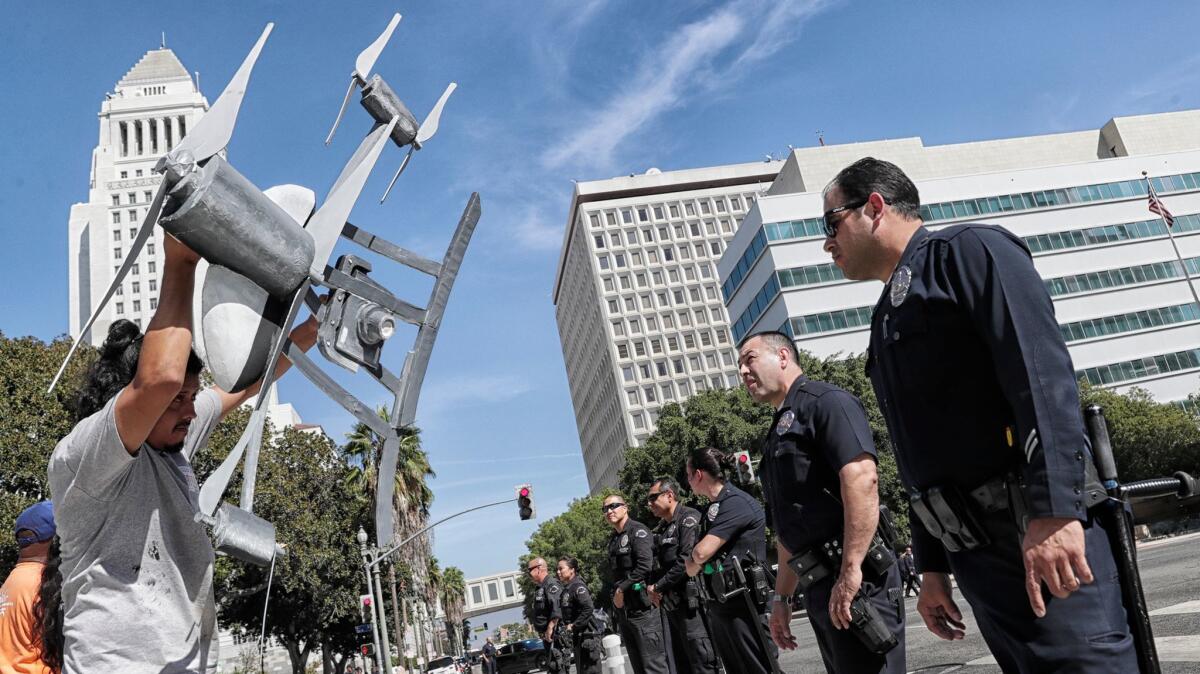LAPD takes another step toward deploying drones in controversial yearlong test

- Share via
The Los Angeles Police Department took another step toward using drones in some tactical situations after its civilian bosses Tuesday approved a $31,500 donation to purchase the controversial devices.
The LAPD has yet to fly any drones. The yearlong pilot program, approved by the Police Commission last fall, won’t begin until the department buys the drones and teaches officers how to use them.
The donation from the Los Angeles Police Foundation will go toward four drones, Assistant Chief Beatrice Girmala told police commissioners at their weekly meeting Tuesday. Each are from DJI, a tech company specializing in drones with offices worldwide.
Girmala said the LAPD plans to use drones of varying sizes and capabilities: one small-sized, half-pound “Spark” model; two three-pound “Phantom” models; and a “Matrice” model that is the largest, weighing 10 pounds and measuring about 25 inches diagonally.
The Phantom devices will likely be those most commonly used by the LAPD, Girmala said, as they are versatile and easy to learn how to operate. The Sparks drone could fly into smaller spaces, she said, while the Matrice model is a “heavy-duty” device equipped to handle rugged terrain or weather.
The use of drones — or “small Unmanned Aerial Systems” in police-speak — has become a contentious issue for law enforcement.
Advocates say camera-mounted drones could help protect officers and others by collecting crucial information during high-risk situations or searches without jeopardizing their safety. For many privacy advocates and police critics, however, the drones stir Orwellian visions of unwarranted surveillance or fears of militarized, weapon-toting devices patrolling the skies.
LAPD brass, along with police commissioners, tried to ease those concerns last fall by promising careful restrictions on when the drones would be used, and strong oversight of the pilot program. Weapons and facial-recognition technology will also be prohibited.
Still, some critics said they could not trust the department to follow the rules, no matter how stringent.
The criticism continued Tuesday, when a handful of activists at the Police Commission meeting denounced the decision to move forward with the pilot program.
Jamie Garcia, a member of the Stop LAPD Spying Coalition — which has long been critical of police use of drones — said the LAPD’s action could set a pattern, leading other cities to adopt the technology. She pointed to Culver City, where the City Council weighed the purchase of eight drones at a meeting Monday.
“Now we see what precedent you have set,” Garcia said.
Twitter: @katemather
More to Read
Sign up for Essential California
The most important California stories and recommendations in your inbox every morning.
You may occasionally receive promotional content from the Los Angeles Times.











